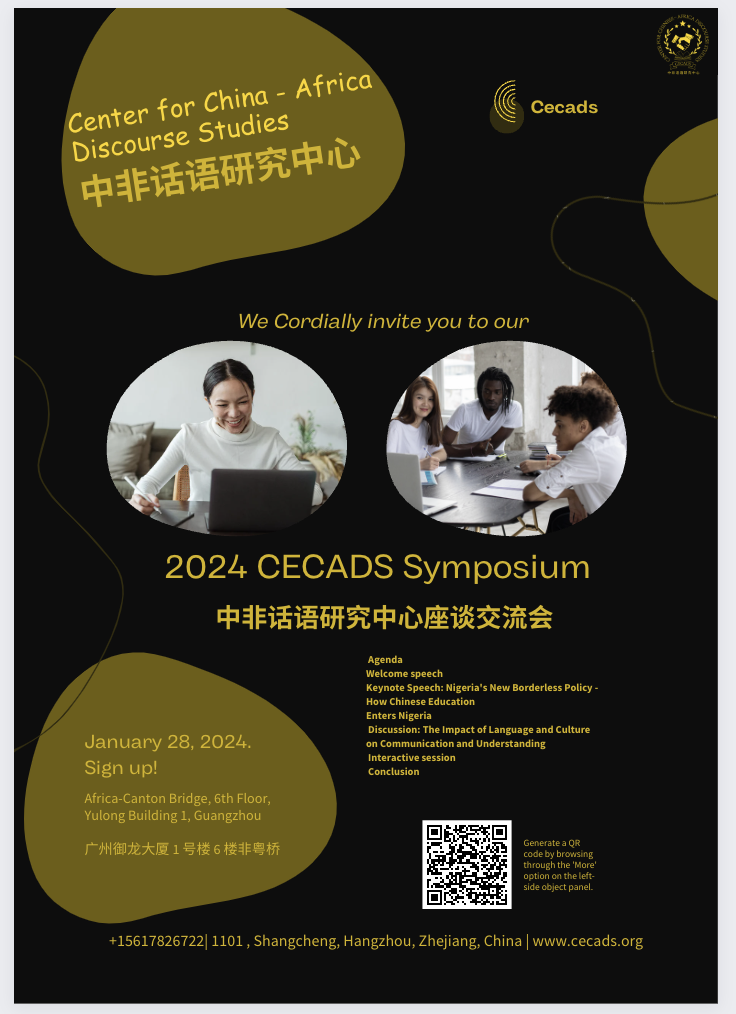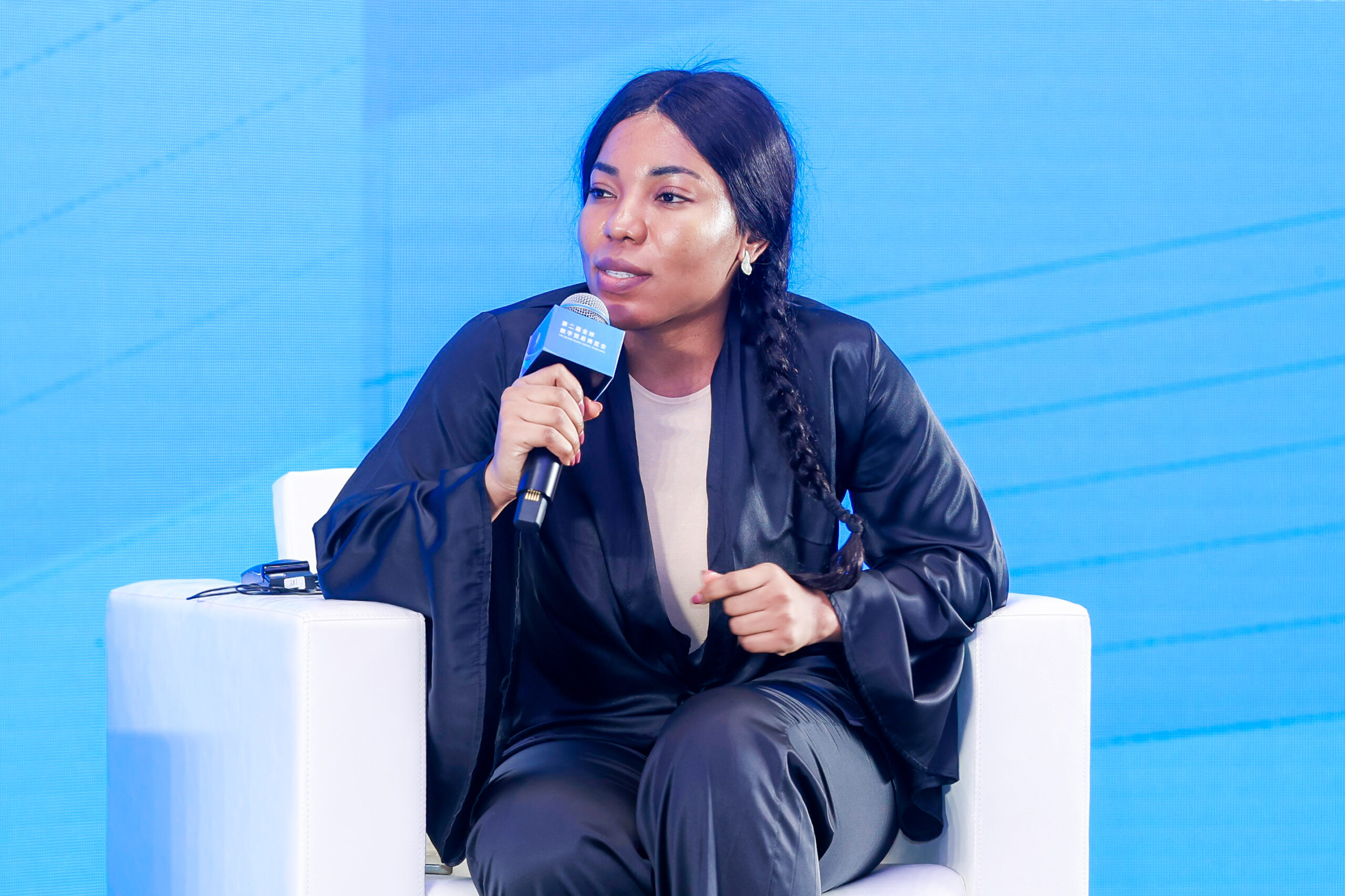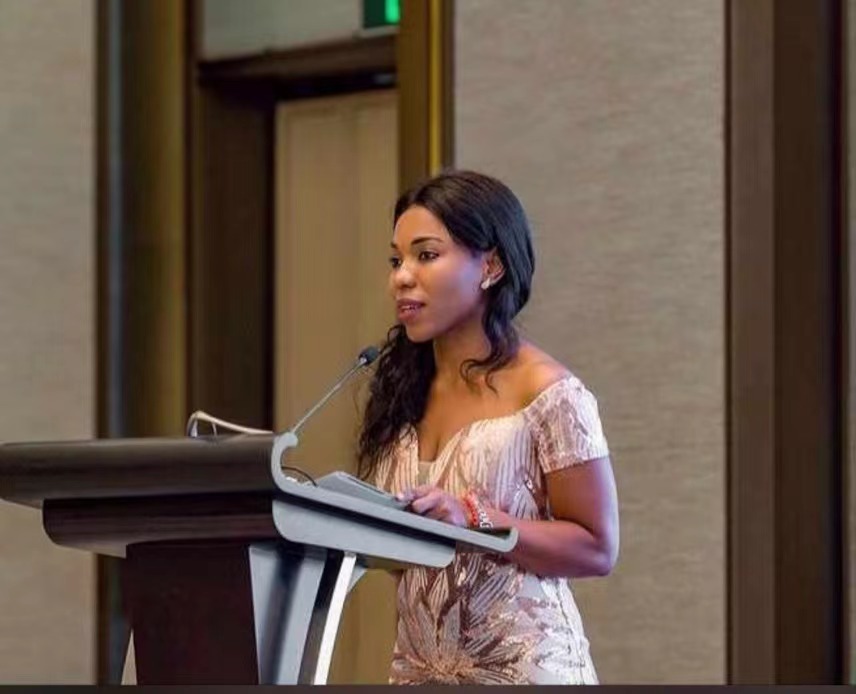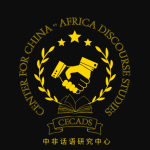Date: April 29th-30th, 2024
Venue: Alfa Belgore, Afe Babalola University
As the world continues to grapple with pressing challenges, the United Nations’ Sustainable Development Goals (SDGs) stand as a beacon of hope, guiding global efforts towards a more sustainable and equitable future. However, achieving these goals requires concerted action and collaboration across borders and disciplines.
Against this backdrop, our upcoming conference on April 29th-30th, 2024, promises to be a pivotal moment in advancing the SDGs by fostering greater inter-university scientific collaboration between Africa and China. Under the theme “Building Bridges for Advancing the SDGs: Enhancing Inter-University Scientific Collaboration between Africa and China” this conference seeks to harness the power of partnerships to address some of the most pressing issues facing our planet.
To register for conference, Contact Us
About the Conference
The Centre for China-Africa Discourse Studies (CECADS) and Afe Babalola University, Ado Ekiti (ABUAD), Nigeria warmly welcome you to the 1st Inter-Continental Universities Conference.
The ultimate goal of the conference is to bring together leading diplomats, international relations experts, sustainability educators, university teachers, trainers, practitioners and students from China and Nigeria to exchange knowledge, experience and learn from each other on how to enhance scientific cooperation and partnerships needed to advance all aspects of the United Nations Sustainable Development Goals (SDGs). This interdisciplinary conference will provide a platform for sharing and exchanging information on the necessary resources, skills, approaches, and methodologies needed to equip students and future administrators and diplomats in China-Africa relations with law and governance skills to advance the SDGs in their spheres of operation.
In acknowledgment of the importance of higher education and inter-university cooperation in advancing sustainable development, the plenary sessions and workshops will provide an opportunity for sharing information and best practices on priority topics, innovative technologies, and knowledge resources to strengthen South-South scientific cooperation between faculty, students and researchers in China and African Universities.
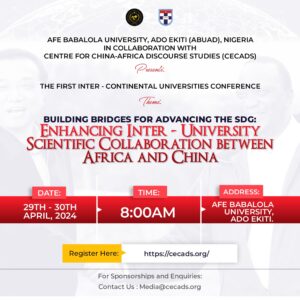
The program will cover three (3) main substantive topics:
1. Higher Education and the SDGs: With the expansion of higher education participation, university has acquired a larger potential for contributing to societal development. In this section, discussants speakers will focus on the role of universities in China and Africa in advancing the successful implementation of SDGs, specifically on issues related to green growth, circular economy, renewable energy development, green investment and trade, green financing, and climate-smart infrastructure development amongst others.
2. Diplomatic Discourse and the SDGs: With the advancement of globalization, the exchanges between countries, especially African countries and China have become more and more frequent and the importance of diplomatic discourse that promotes international relations, especially Africa-China relations on a global stage has become inevitable and significant for numerous countries, especially African countries and China. In this section, discussants speakers will discuss about the latest developments in the international relations, including innovative educational techniques, legal tools, best practices, interdisciplinary research, resources and simulation models aimed at not only transforming the SDGs into scalable impact at local levels in Africa and China but could help in advancing the successful implementation of SDGs globally.
3. Role of Students and Youth in SDG Implementation: Recent decades young people have played a pivotal role in instigating and driving significant changes globally. They have also instigated significant advances in terms of human development, community development and social change initiative for sustainable value creation; this is of considerable importance in the pursuit of SDGs. Nevertheless, deep challenges remain; progress has been uneven, with many young people across the world still experiencing high level of poverty and limited access to educational opportunities and decent role. In this section, speakers will focus on (i) the role of youth-led entrepreneurial innovation in curbing poverty and unemployment challenges and what the international community needs to do to provide the necessary entrepreneurial skills that will enable young graduates to ease the transition from education to develop their own projects and business, which in turn, could help in advancing the implementation of SGDs globally, especially among African and China youth; (ii) Focus on current capacity development gaps and needs of industries, agencies and ministries, and how they can be met within the context of SDGs.
In addition to academic and scientific collaboration, the conference will also explore the role of innovation and technology in advancing the SDGs. From renewable energy and digital infrastructure to sustainable agriculture and healthcare solutions, technology has the power to catalyze progress and transform lives. By harnessing the potential of innovation, Africa and China can leapfrog traditional development pathways and chart a more sustainable course for the future.
Ultimately, the success of the conference will depend on the collective commitment and action of all participants. By working together in the spirit of collaboration and partnership, Africa and China can build bridges towards a more prosperous, equitable, and sustainable world for future generations.
As the conference approaches, let us seize this opportunity to reaffirm our shared commitment to the SDGs and to forge new partnerships that will drive meaningful change. Together, we can build a brighter future for all.
Introduction of Guests and Dignitaries
Chief Host
Aare Afe Babalola, SAN, OFR, CON, LL.D (London)Founder & Chancellor, ABUAD
Organizers: CECADS AND ABUAD
Representatives:
Professor Smaranda Olarinde, FCAI, FCArb, Vice Chancellor, Afe Babalola University, Ado Ekiti
Queen Modestus, Director, Centre for China-Africa Discourse Studies
Professor Damilola Olawuyi, SAN, Chairman, Conference Planning Committee
Goodwill Messages
H.E. Mr. Biodun Abayomi Oyebanji, Executive Governor of Ekiti State
Professor Tahir Mamman, Honorable Minister for Education, Federal Republic of Nigeria
Ms. Yan Yuqing, Consul-General of the People’s Republic of China in Nigeria
Amb. Ogu Chimezie Okeoma, Consul-General of the Federal Republic of Nigeria, Shanghai
Prof. Zhao Hongling, Chinese Director of Confucius Institute of UNILAG
Keynote Speaker
Prof. Shi-Xu, the Director of the Center for Contemporary Chinese Discourse Studies, Hangzhou Normal University
Prof. Liu Hongwu Wu, Director, Institute of African Studies, Zhejiang Normal University
High Level Panel Discussion: Higher Education and the SDGs
Moderated by: Dr. Michael M. E. Executive Director, Center for Nigerian Studies, Institute for African Studies, Zhejiang Normal University
Zhang Jianming, the First Executive Vice President of Zhejiang Chinese Culture Overseas Promotion Association and Former Vice President of Zhejiang Provincial Party CommitteeTracy Huo (Huo Jiangtao), Vice Chairman of the Belt and Road African Studies Alliance, Special Assistant to the Dean, Institute of African Studies, Guangdong University of Foreign Studies
Moderated by: Prof Osundu Adaora, Professor of International Relations, ABUAD
Hon. Seun Fakunde, Honorable Commissioner for Innovation, Science and Digital EconomyChief Dr. Sunny Ofehe, the Executive Assistant External Relations and Diaspora Affairs of Delta State Government
Badmus Azeez, Special Adviser Ministry of Innovation Science Technology and Digital Economy, Osun State Government
Mr. Wang Jun, Former Foreign Affairs Director, Hangzhou, and Special Consultant, CECADS

